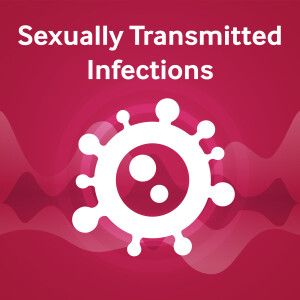
Wednesday Apr 23, 2025
Testing for Blood Borne Infections in Antenatal Clinics
Today we will discuss the evolution and efficacy of antenatal testing for blood borne pathogens as a strategy to improve pregnancy outcomes and prevent parent to child transmission. Over the last 40 years the number of infections tested for in the antenatal setting has expanded which has been followed closely by treatment guidelines for each infection. However, there are stark regional differences in the infections routinely tested for. Brazil has recently added Human T Leukaemia Virus (HTLV) to its antenatal testing and is planning to test 2.5 million pregnancies yearly. Pregnant people who test positive for HTLV are advised to avoid breast feeding and are provided with formula milk free of charge. Health care providers are being offered upskilling in HTLV care provision. This way Brazil aims to "Take HTLV out of Invisibility" and ultimately eliminate HTLV in Brazil.
Host: Ass Prof/Dr Fabiola Martin, Sexual Health Specialist, Associate Professor at Australian National University
Guests: Professor Graham Taylor, Head of Section of Virology at Imperial College London and a founder of the National Centre for Human Retrovirology at St. Mary’s Hospital – the UK’s clinical service for people living with Human T Leukaemia Virus (HTLV) infection.
Dr Pâmela Cristina Gaspar, General Coordinator of Sexually Transmitted Infections Surveillance at Ministry of Health of Brazil, Brasilia, Brazil Host: Ass Prof/Dr Fabiola Martin, Sexual health, HIV and HTLV Specialist, Canberra, Australia and Australian National University
Brazil HTLV ANC testing:
- National guide: https://www.gov.br/aids/pt-br/central-de-conteudo/publicacoes/2022/guia_htlv_internet_24-11-21-2_3.pdf/view
- Folder HTLV for general population: https://www.gov.br/aids/pt-br/assuntos/ist/materiais-informativos/folder-htlv-final-grafica.pdf
- Distance Learning Course for HTLV: https://campusvirtual.fiocruz.br/gestordecursos/hotsite/htlv
NACCHO-ASHM, Australia, HTLV testing guidelines:
https://htlv1.guidelines.org.au/
No comments yet. Be the first to say something!